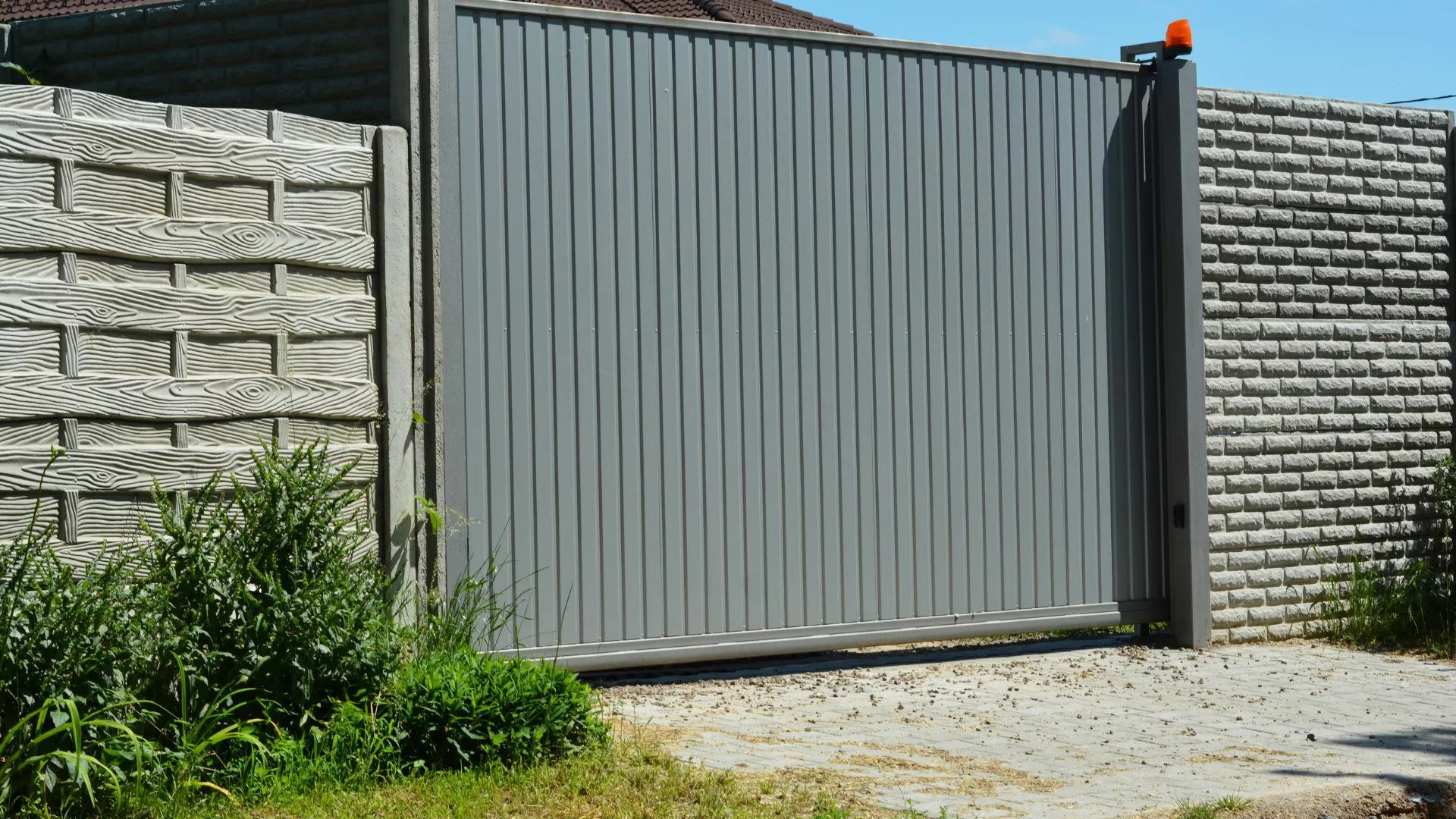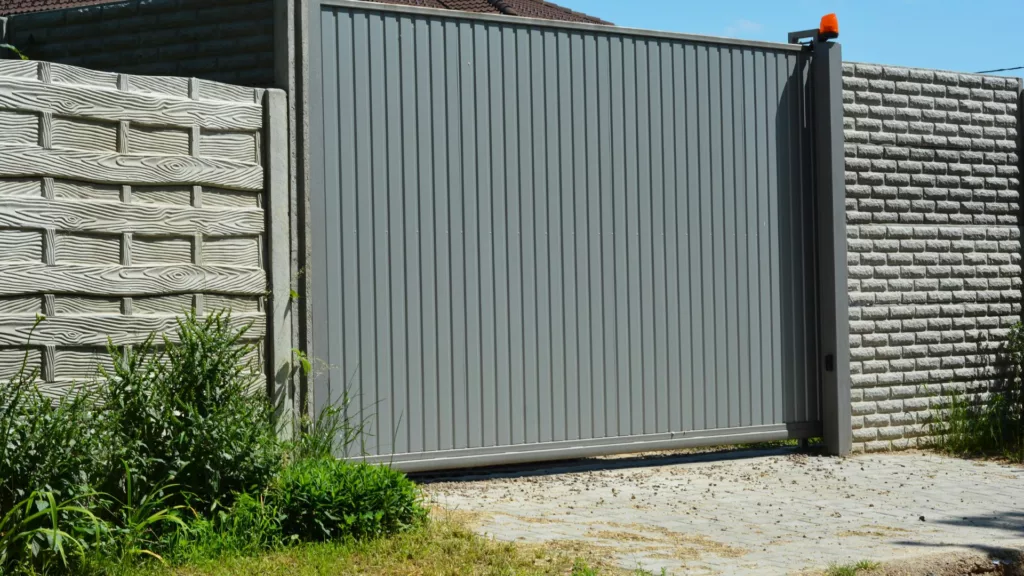Understanding the Function and Applications of Slide Gates in Various Industries

Managing the flow of materials can be a challenge for many industrial and commercial property managers. Slide gates are key in solving this issue, widely utilized across various sectors for their control and efficiency.
This article will delve into how slide gates function, their different types, and where they find application, providing you with insights to streamline operations on your properties.
Let’s explore together.
Key Takeaways
- Slide gates are crucial for managing the flow of bulk materials in various industries, due to their ability to precisely control material discharge from hoppers, bins, silos, or conveyors.
- Different types of slide gates, like SS – 250 Stainless Steel Slide Gates and AWWA Slide Gates, cater to specific requirements such as exceptional sealing capabilities and compliance with rigorous standards for water and wastewater management.
- These gates find extensive applications across sectors including agriculture where they streamline food production processes by efficiently distributing grains and feed; in manufacturing, particularly with chemicals or pharmaceuticals, they enhance safety by securely sealing off dangerous materials.
- The evolution of slide gates from manual operations to incorporating advanced technologies such as pneumatic mechanisms has significantly improved their efficiency and expanded their application scope.
- Modernization efforts include the adoption of automation in slide gate operations which offers new levels of convenience and precision, exemplified by organizations upgrading to automated systems for enhanced flow control capabilities.
Understanding the Function of Slide Gates

Slide gates serve a crucial role in regulating the flow of bulk materials, whether from hoppers, bins, silos, or conveyors. Their design centers on a mechanical principle that employs a metal slide plate to create an internal pinch point.
This mechanism allows for precise control over material discharge, making them indispensable in industries dealing with vast quantities of bulk materials.
These gates stand out not only for their efficiency but also for their versatility across various settings including residential, commercial, and industrial properties. Often made from stainless steel to resist corrosive elements, slide gates offer durability and longevity even in challenging environments.
The next section delves into the various types of slide gates available in the market.
Various Types of Slide Gates

Exploring the range of slide gates reveals a world of precision and versatility tailored to meet specific industry needs. Each type serves a unique function, from controlling material flow in harsh environments to ensuring seamless operation in water treatment facilities.
SS-250 Stainless Steel Slide Gates
SS-250 Series Stainless Steel Slide Gates stand out for their exceptional sealing capabilities and unmatched corrosion resistance. Engineered with precision, these gates meet NSF 61/NSF 372 standards, ensuring they are a perfect fit for a multitude of industries including water management and irrigation.
Their construction from high-strength 304L stainless steel not only promises durability but also safeguards against rust, making them an enduring choice for any setting.
For specific needs, Automated Gate Services offers customizable solutions with these slide gates. They can tailor the design to handle different heads – starting from 1.5 meters to more demanding requirements.
This adaptability makes SS-250 slide gates a versatile tool in material handling and pipe flange applications across California’s vast industrial landscape. With various configurations and sizes available, these gates cater to diverse water control and distribution tasks effortlessly, proving themselves as indispensable assets for commercial and industrial property managers seeking reliable water management solutions.
Hand Slide Gate
Moving from the high-tech SS-250 Stainless Steel Slide Gates, we delve into the world of Hand Slide Gates, a simpler yet equally vital component in managing bulk materials. These gates stand out for their manual operation, offering precise control over the discharge of materials from hoppers, bins, silos, or conveyors.
Ideal for commercial and industrial property managers in California looking to maintain hands-on management of material flow without relying heavily on automated systems.
Hand slide gates come in various designs including V groove (rolling), cantilever, and overhead types to suit different operational needs and gate sizes. Their versatility is matched by operators designed to handle gates of varying weights with ease.
This ensures that regardless of the size or type of facility you manage, there’s a hand slide gate solution tailored to regulate bulk material flow effectively while promising durability and reliability.
AWWA Slide Gates
AWWA slide gates meet rigorous standards set by the American Water Works Association, ensuring they are suitable for a variety of applications in water and wastewater management. These gates come in different materials like fabricated composite, aluminum, and cast iron, accommodating the diverse needs of industrial and commercial property managers across California.
Their design allows for full-aperture closure to efficiently manage water flow under seating head conditions or unseating head conditions—or even both.
Property managers seeking reliable solutions for controlling water levels find AWWA slide gates to be an essential tool. The guidelines provided by AWWA for these gates cover everything from their initial installation to regular maintenance tasks.
This ensures that whether you’re dealing with fabricated aluminum slide gates or composite ones, your investment is safeguarded through adherence to established operational benchmarks.
Employing these well-crafted mechanisms offers peace of mind in managing water resources effectively while also adhering to stringent safety and performance standards.
Applications of Slide Gates in Different Industries
In agriculture, slide gates play a crucial role by managing the distribution of grains and feed from silos to trucks or conveyor belts efficiently. This precise control ensures that food production processes are streamlined, significantly reducing waste while boosting productivity.
These gates contribute to maintaining high-quality standards in agricultural products by preventing contamination and enabling quick response to environmental changes.
Moving on to manufacturing sectors, especially those dealing with chemicals or pharmaceuticals in California, slide gates become indispensable for safety and operational efficiency.
They seal off dangerous materials securely and regulate the flow of substances into processing areas without risking exposure or spillage. Handling bulk materials safely is essential for meeting stringent industry regulations and protecting workers’ health, making slide gates an invaluable asset in these environments.
Their versatility also extends to handling recyclable materials within waste management facilities, ensuring efficient sorting and transportation processes that support sustainability goals.
The Evolution and Modernization of Slide Gates
Slide gates have journeyed through a significant evolution, transitioning from manual operations to incorporating advanced technologies. Earlier versions required physical effort to open or close, limiting their efficiency and application scope.
However, the demand for more sophisticated systems led to the integration of pneumatic mechanisms, which are now widely utilized in various industries for regulating bulk material flow.
This modernization has not only improved operational efficiency but also expanded the possibilities of their use in complex industrial environments.
Adopting automatic functionalities marked a pivotal moment in slide gate innovation. The advent of automation brought about new levels of convenience and precision in controlling gates, fueling wider adoption across California’s commercial and industrial landscapes.
Moreover, organizations like the Walker River Irrigation District exemplify this shift by upgrading to automated slide gates for enhanced flow control capabilities. As cantilever sliding gates gain popularity for diverse applications including residential complexes, it’s clear that the realm of slide gates is witnessing an era defined by technological advancement and versatility in application.
Conclusion
Understanding the function and applications of slide gates across various industries reveals their essential role in optimizing material handling processes. These mechanisms prove practical and efficient, streamlining operations in bulk material handling, food processing, mining, and more.
Highlighting their versatility, slide gates adapt to manual, pneumatic, or hydraulic operation to meet specific industry needs. For those looking to delve deeper into this subject, numerous resources provide insights into selecting the right type for your application.
Let this knowledge inspire you to explore how integrating slide gates can significantly enhance operational efficiency within your industry.
Discover more about the advancements in gate technology by visiting our detailed guide on modern slide gates.
FAQs
1. What do slide gates do in industries?
Slide gates control the flow of materials like grains, powders, and solids in many industrial processes.
2. Can slide gates work with liquids?
Yes, some specially designed slide gates can manage the flow of liquids as well.
3. Where are slide gates most commonly used?
They are widely used in agriculture, mining, food processing, and manufacturing sectors.
4. Are there different types of slide gates for various applications?
Yes, there are multiple types tailored to handle specific materials and operational needs efficiently.
5. How do I choose the right slide gate for my industry’s needs?
Selecting the appropriate type involves considering your material’s nature, flow rate requirements, and environmental conditions.